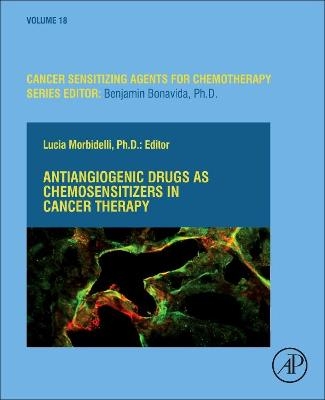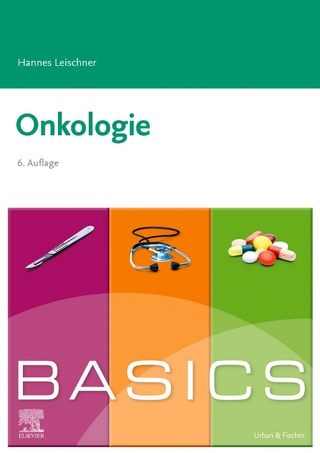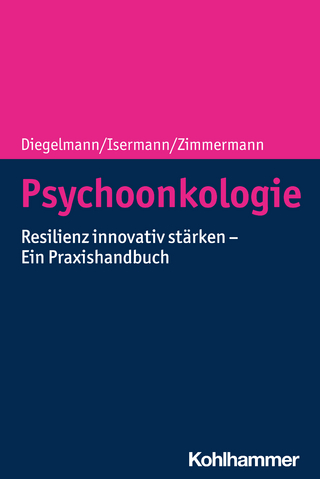
Antiangiogenic Drugs as Chemosensitizers in Cancer Therapy
Academic Press Inc (Verlag)
978-0-323-90190-1 (ISBN)
In addition, the book discusses clinical applications in various types of cancer, such as colorectal, lung, breast, renal, genitourinary, skin and brain and circulating tumors. It is a valuable resource for cancer researchers, clinicians and members of the biomedical field who wants to be up-to-date on the most recent and promising developments in the field.
Dr. Morbidelli’s experience is within the molecular and biochemical pharmacology of angiogenesis and microcirculation and its biological application in diseases and cancer. Through of a plethora of in vitro and in vivo models, she has contributed to the characterization of the pro- and antiangiogenic activities of designed synthetic molecules and natural products and their potential applications in angiogenesis-dependent diseases of the cardiovascular system, ocular disorders, neurovascular diseases and cancer. She co-organized with Professor Bonavida the Fourth International Workshop on “Nitric Oxide in Cancer held in Sevilla in March 13-14, 2015. The meeting addressed different topics such as NO, mutagenesis, carcinogenesis, tumor promotion and tumor growth; NO regulation of cell death pathways; NO and proliferation and epithelial-mesenchymal transition; Regulation of immune response by NO; Antitumoral activity of NO-based releasing strategies: pre-clinical studies; Antitumoral activity of NO-based releasing strategies: clinical trials.
1. General Introduction to the book2. Angiogenesis: definition and role, cellular and molecular mechanisms, redundancy of angiogenic modulators, receptors and converging signaling3. Anti-angiogenic drugs (monotherapies): General characteristics; molecular mechanisms; efficacy and side effects4. Anti-angiogenic drugs (combination therapies): molecular mechanisms; efficacy and side effects5. Clinical applications in various cancers; state of the art of the approved protocols, ongoing clinical trials, gaps6. Antiangiogenic drugs as chemosensitizer in colorectal cancer7. Antiangiogenic drugs as chemosensitizer in lung cancer8. Antiangiogenic drugs as chemosensitizer for upper GI cancer9. Antiangiogenic drugs as chemosensitizer in breast cancer10. Antiangiogenic drugs as chemosensitizer in renal and genitourinary cancer11. Antiangiogenic drugs as chemosensitizer in skin cancer12. Antiangiogenic drugs as chemosensitizer in brain tumors13. Antiangiogenic drugs as chemosensitizer in circulating tumors14. Antiangiogenic drugs and radiosensitization: state of the art on protocols and experimental studies15. Resistance to combination treatments: mechanisms of resistance to antiangiogenic drugs and cross-talk with tumor cell mechanisms of resistance16. Combination of antiangiogenic drugs with immunotherapies: efficacious synergism; side effects and limits17. Prognostic and diagnostic biomarkers for therapy choice and to monitor antiangiogenic drug efficacy and toxicities18. Antiangiogenic strategies: one target or multitarget inhibitors; synthetic compounds, gene therapy and natural products19. Synthesis and application of dual inhibitors: rationale for development and state of the art of the studies20. Metronomic therapy: mechanisms, advantages and approved protocols alone or in combination21. Personalized medicine with tumor angiogenesis as diagnostic marker and therapeutic target22. General Conclusions and future perspectives
| Erscheinungsdatum | 27.01.2022 |
|---|---|
| Reihe/Serie | Cancer Sensitizing Agents for Chemotherapy |
| Zusatzinfo | 80 illustrations (50 in full color); Illustrations |
| Verlagsort | Oxford |
| Sprache | englisch |
| Maße | 191 x 235 mm |
| Gewicht | 770 g |
| Themenwelt | Medizin / Pharmazie ► Medizinische Fachgebiete ► Onkologie |
| Medizin / Pharmazie ► Medizinische Fachgebiete ► Pharmakologie / Pharmakotherapie | |
| Naturwissenschaften ► Biologie | |
| ISBN-10 | 0-323-90190-5 / 0323901905 |
| ISBN-13 | 978-0-323-90190-1 / 9780323901901 |
| Zustand | Neuware |
| Haben Sie eine Frage zum Produkt? |
aus dem Bereich


